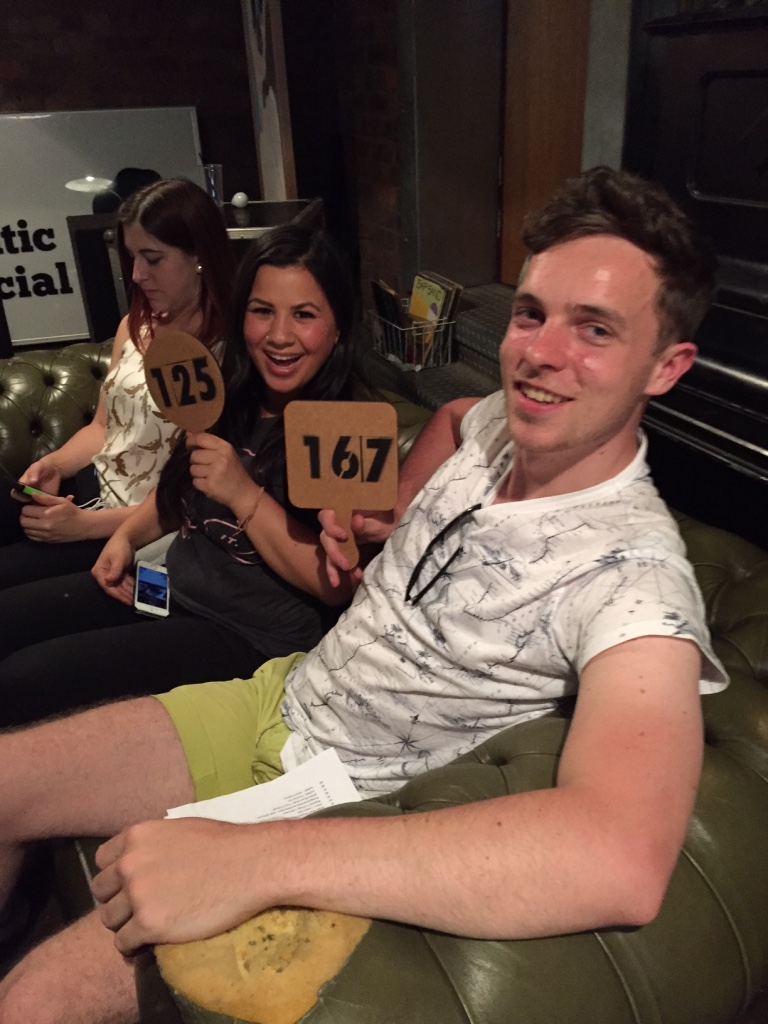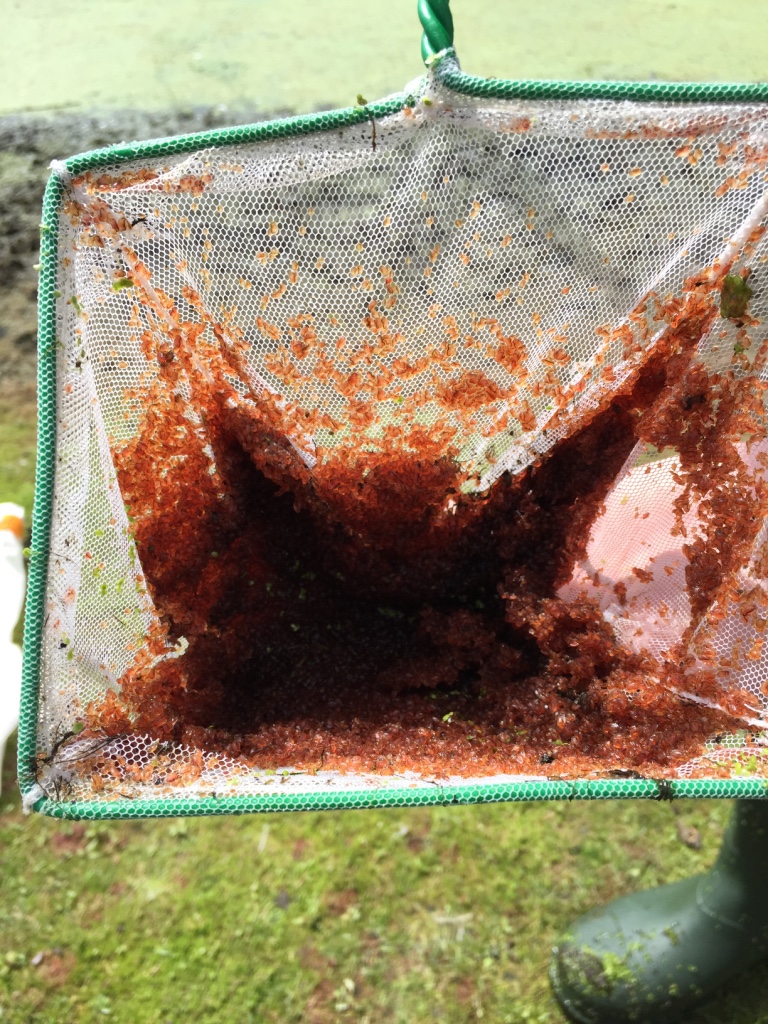Good things come to those who wait.....
19/10/16 00:26
We are very happy to welcome Franzi Brunner (Post-doc), Alan Reynolds (Tech with a doc) and Steve Price (Tech) to the lab. The team have wasted no time in getting on with our new NERC highlight grant and our now busily hatching out the resting eggs collected from Brown Moss earlier in the year. 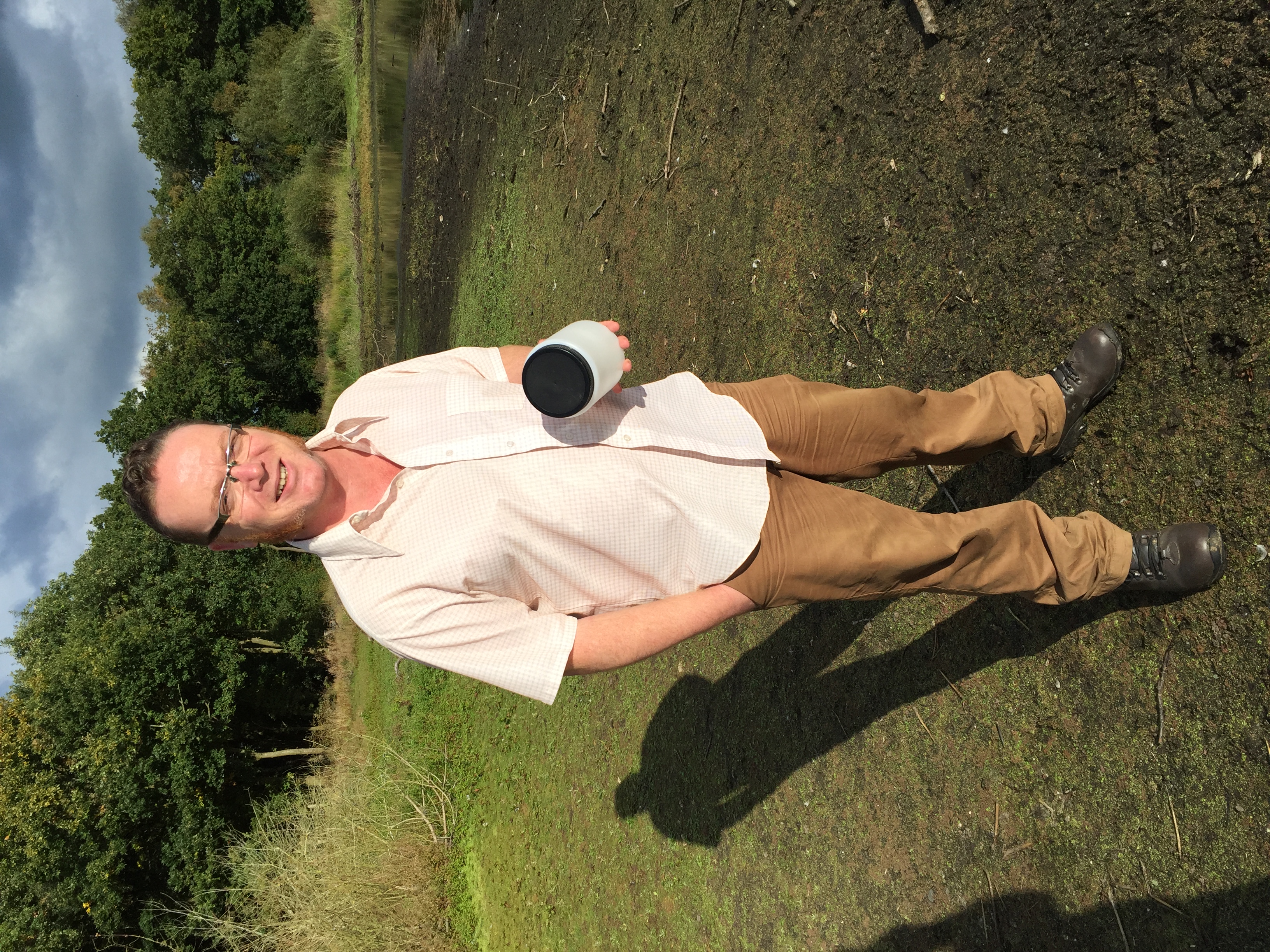
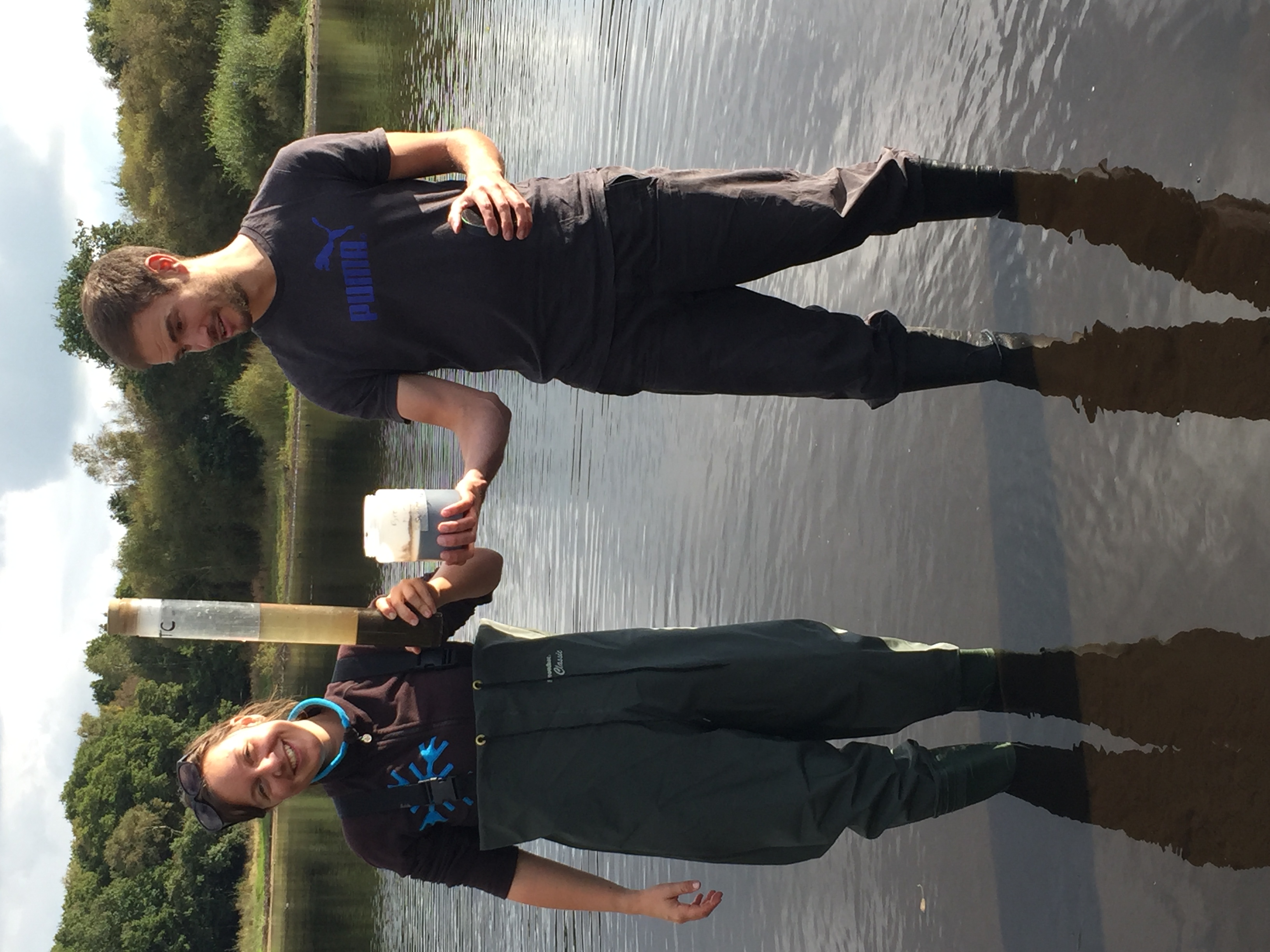


Megan wins the CCI best talk prize!!
21/09/16 00:14
Congratulations to Meg Hasoon who has won the best short talk prize for her presentation of her work on Daphnia development and the transmission of maternal effects. Not bad for her first ever conference talk!! Have a look here to see Meg's work
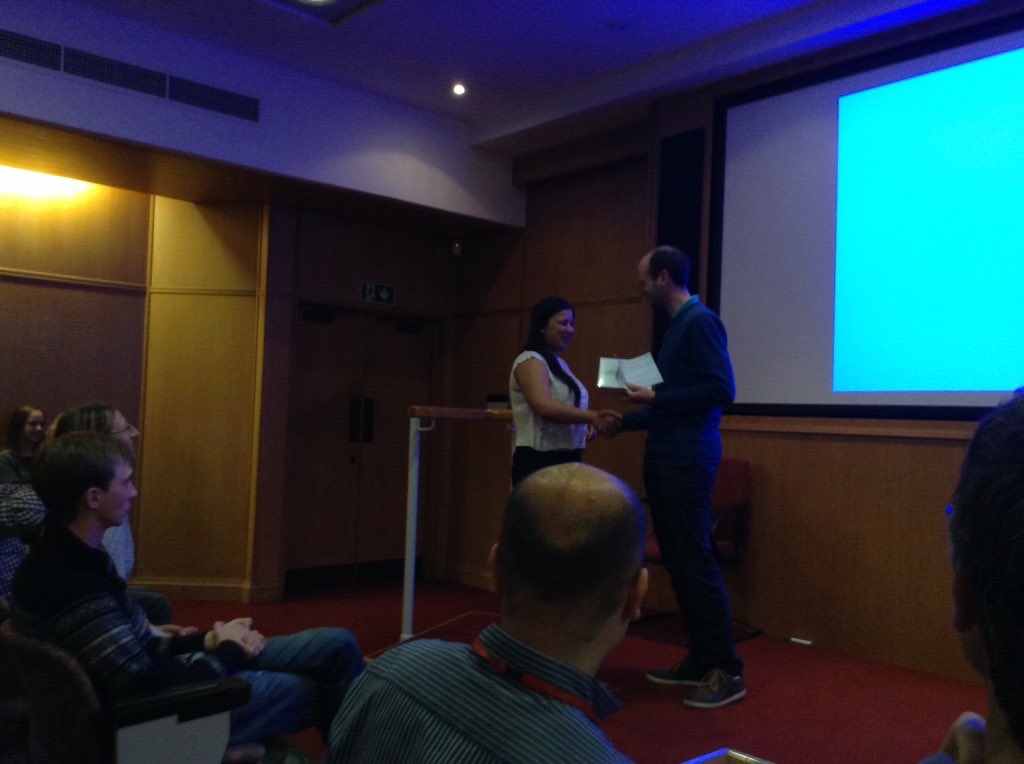

New recruits!!!!
15/08/16 00:09
We are delighted to have found the perfect team for the NERC highlight grant and look forward to shortly welcoming
Franziska Brunner (post-doc), Alan Reynolds (Technician) and Stephen Price (Technician) to the lab at the beginning of October.
A further molecular post-doc position will be advertised in 2017.
Franziska Brunner (post-doc), Alan Reynolds (Technician) and Stephen Price (Technician) to the lab at the beginning of October.
A further molecular post-doc position will be advertised in 2017.
NERC highlight grant gets underway
15/06/16 00:02
James, Jack and Stew pay a visit to Brown Moss in search of Daphnia magna………
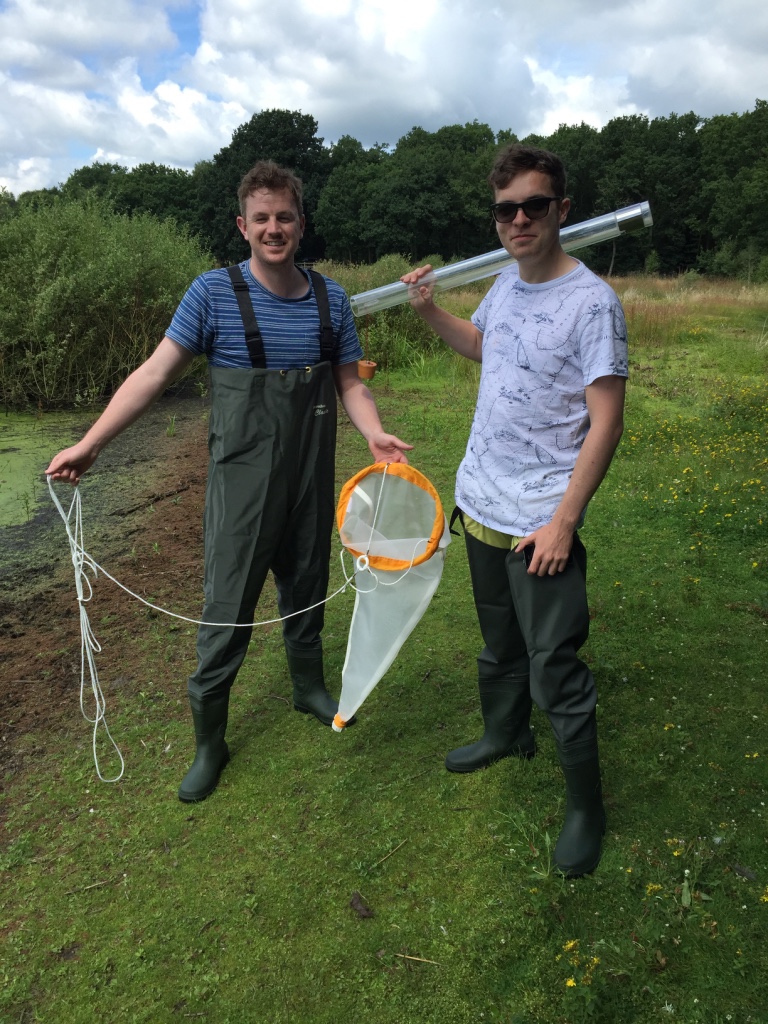
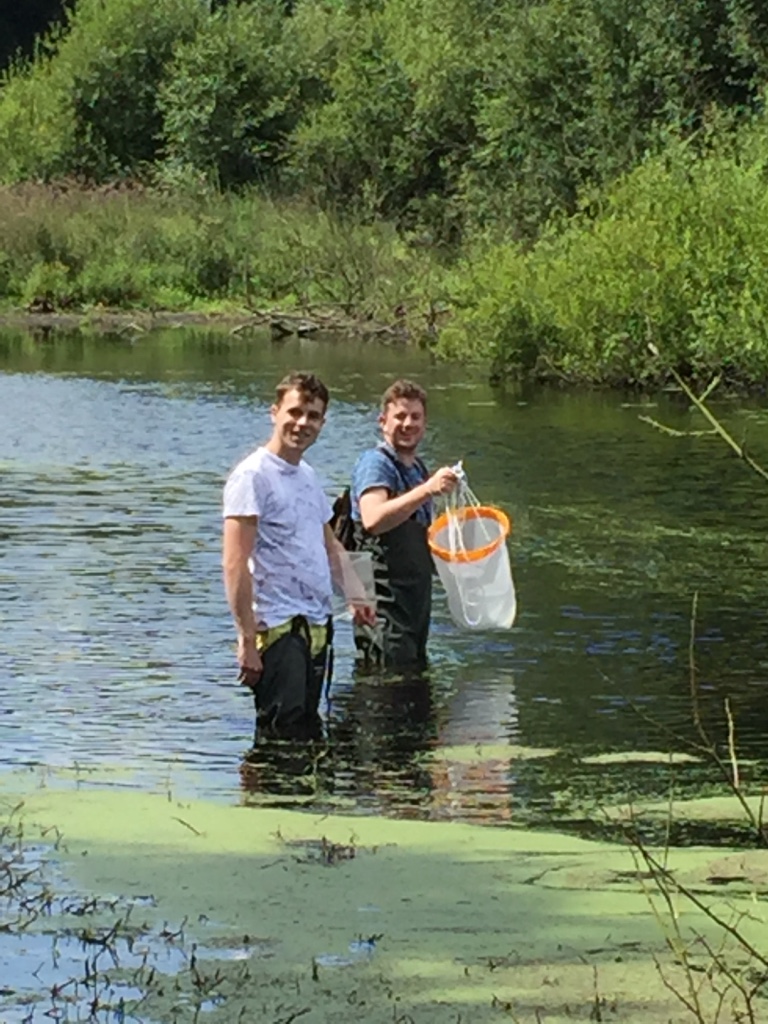


Summer students 2016
08/06/16 23:45
The lab has employed three 2nd year undergraduates to help with the resurrection of the ponds at Ness botanic gardens over the summer.
Welcome Jack Smith, James O'Brien and Rachel Horner!
Welcome Jack Smith, James O'Brien and Rachel Horner!
MAJOR NERC GRANT WIN!!!
11/03/16 23:25
Dr Stewart Plaistow, Dr David Atkinson and Prof. Steve Paterson have been awarded £1.2 million to investigate what limits the ability of species to adapt to a changing environment.
Over the next four years the team will study rapid evolution in Daphnia magna, a water flea that has a major impact on water quality and the health of freshwater ecosystems. They will examine the response of D. magna, and its associated ecosystem, to heat-waves. Field experiments will be performed in 48 identical ponds at Ness Botanic gardens. The study will exploit the latest DNA sequencing technologies to better understand the genetic mechanisms underlying adaptation to climate change.
The researchers will also investigate the potential importance of two further processes - plasticity and epigenetics - for adaptation. Plasticity allows individuals to change their pattern of development, growth and/or reproduction in response to the environment, and epigenetics allows these changes to be transmitted to their offspring by modifying the action of genes.
Over the next four years the team will study rapid evolution in Daphnia magna, a water flea that has a major impact on water quality and the health of freshwater ecosystems. They will examine the response of D. magna, and its associated ecosystem, to heat-waves. Field experiments will be performed in 48 identical ponds at Ness Botanic gardens. The study will exploit the latest DNA sequencing technologies to better understand the genetic mechanisms underlying adaptation to climate change.
The researchers will also investigate the potential importance of two further processes - plasticity and epigenetics - for adaptation. Plasticity allows individuals to change their pattern of development, growth and/or reproduction in response to the environment, and epigenetics allows these changes to be transmitted to their offspring by modifying the action of genes.
Royal Society video
10/03/16 23:39
The labs Royal Society partnership grant with Dr John Dyer at Liverpool UTC is featured in a video for the Royal Society highlighting the value of partnership grants. Go here to see the results!
Red poultry mites.........
17/11/15 23:40
Stew gave an invited seminar on mite population dynamics to a European COREMI workshop on “Improving current understanding and research for sustainable control of the poultry red mite, Dermanyssus gallinae” in Montpelier, France.
Welcome MRes student - Megan Hasoon
17/11/15 23:34
Megan is going to be attempting to develop a high-throughput Daphnia development assay that she will then use to try and correlate developmental phenotypes with life-history variation. See an early attempt at assaying Daphnia development here
Welcome 2015/16 Hons students Cheong Ho Lee, Lee Meehan and Thomas Cole
17/11/15 23:30
Tom is extending our Lansing work and investigating whether non-genetic maternal age effects influence population growth rates.
Cheong Ho is investigating within population variation in the temperature tolerance of Daphnia pulex
Lee is rearing eggs in and out of mum’s to investigate whether the brood pouch environment is an important source of non-genetic phenotypic variation.
Good luck all!
New papers from the lab
17/11/15 23:29
Van Dooren, T.J.M., Hoyle, R.B., and Plaistow, S.J. (in press) Maternal effects, in Encyclopedia of Evolutionary Biology, Quantitative genetics section, ed.Jason Wolf, Elsevier Ltd, Oxford.
Plaistow, S.J., Shirley, C. Collin, H., Cornell, S.J. and Harney, E,D. (2015) Offspring provisioning explains clone specific maternal age effects on life history and lifespan in the water flea, Daphnia pulex. The American Naturalist, 186 (3), 376-389.
3 new PhD opportunities in the Plaistow lab
05/11/14 23:23
We are currently advertising two new PhD projects linked to the NERC ACCE DTP (funding is competitive) see here
There is one further FUNDED PhD opportunity working with Francesco Falciani, Stephen Cornell and UNILEVER trying to link the effect of pollutants through from molecular initiating events through to individual level plasticity and population dynamic consequences. Its a cool project and FULLY FUNDED by UNILEVER see here
There is one further FUNDED PhD opportunity working with Francesco Falciani, Stephen Cornell and UNILEVER trying to link the effect of pollutants through from molecular initiating events through to individual level plasticity and population dynamic consequences. Its a cool project and FULLY FUNDED by UNILEVER see here
Samples through the sequencer!!!!!
05/11/14 23:21
Congratulations Leni and Steve getting our DNA samples through the Hi-seq in one piece! Pollution induced effects on the methylome here we come!
New people in the lab
05/11/14 23:19
Welcome to the lab Lewis Carmody (MBIOL), James Cox (Hons), Michael Green (Hons), Stacey Ashurst (Hons)..............you’ve been here 6 weeks but I’m only just getting around to doing this!!
New papers from the lab.......
16/06/14 11:39
Phenoytypic integration plasticity in Daphnia magna: an integral facet of G x E interactions, Stewart Plaistow & Helene Collin (out shortly in Journal of Evolutionary Biology)
Eco-evolutionary dynamics: experiments in a model system, Tom C. Cameron, Stewart Plaistow, Marianne Mugabo, Stuart B. Piertney & Tim G. Benton (coming out in Advances in Ecological Research in July)
